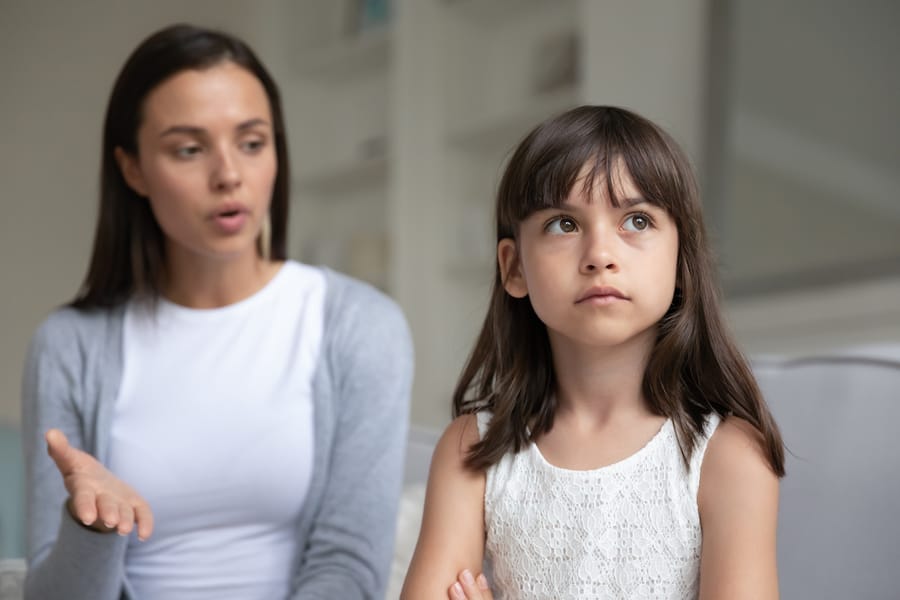Parents urged to spot the signs of hearing loss in children
Does your child say “what?” or “pardon?” a lot? Ignores you when you call their name? Have the television up loudly, or has seemed unengaged or frustrated at school? Then their hearing might actually be to blame.
Much more so than adults, hearing problems in youngsters can lead to delays with language and speech development, academic setbacks, stunted social skills and a loss of overall confidence.
angli-EAR Hearing Director and Lead Audiologist, Trevor Chapman, is urging parents to look out for any of the warning signs of hearing difficulties. Trevor says:
”Overall, hearing loss is fairly common in children. It is estimated that 15% of children and teens have some degree of loss. Of these, 60% are preventable and treatable. In many cases, hearing loss is slight, only affecting one ear. Severe hearing loss is much less common.
Causes are varied and can include genetic factors, injury, infection, medication, premature birth or obstructions such as earwax or foreign objects stuck in the ear.
Difficulties with hearing in children and teenagers can manifest as one of many behavioural conditions. Additionally, if a child is being assessed for ADHD or a learning disorder, it’s important to get a hearing check, too”
Signs of hearing problems or hearing loss in children
While the signs of hearing loss, glue ear or other conditions may not always be obvious, modern technology can help diagnose and treat a child so that the condition doesn’t have to define their life.
Visiting an audiologist for a hearing test is a good place to start, but what are the signs you should look out for that mean your child would benefit from a hearing assessment?
Fluctuating Responses
If you feel that it takes several attempts for you to call your child before they respond to you or that they don’t seem to hear everything that you’re saying, they may need to have a hearing test. An indicator could also be speaking loudly, and irritability due to ear discomfort. This may also be down to children’s stubborn behaviour, but it may not always be the case!
Slow Speech Development
Research has shown that speech and language problems (speaking unclearly and/or mispronouncing some words) and poor academic performance could also be signs that your child needs to get their ears and hearing checked.
Children learn to speak by listening to others so if you feel that you child’s speech development is slow or slurred, a hearing test should confirm or rule out any hearing loss. With the appropriate treatment, a child’s hearing can improve and enable them to develop their communication skills as they grow.
Your Child Seems Like They’re Not Paying Attention
If your child doesn’t respond to you very quickly or gives odd answers to your questions, hearing loss may be causing the problem. It can be difficult to determine your child’s health based on their communication and mood so a hearing assessment may help pick up any issues that may have previously been missed.
They’re Struggling in School or Have Trouble Following Direction
Children with hearing loss often lose their confidence or the ability to hear well enough in class to learn topics usually expected for someone of their age.
Does your child really struggle with reading and phonics? Occasionally, this could be due to other causes, but is noted as a flag for poor hearing. As some children often lack the confidence to ask teachers to repeat themselves, hearing loss may be affecting their performance and academic achievements.
What can you do if you are concerned about your child’s hearing?
Research shows that correctly fitted hearing aids with the appropriate after-care and support can improve your child’s relationships and boost school performance in children who have hearing loss.
If you have any concerns regarding your child’s hearing after 5 years of age, please get in touch with us to arrange an appointment. We provide a relaxed environment, and our testing and treatments are tailored to suit all ages.
If you have concerns about your child’s developmental milestones before the age of 5 years old, please get in touch with your GP.
Childrens’ hearing tests
Trevor Chapman says: “The NHS newborn hearing screening programme conducted soon after birth is offered to all parents and is a quick and easy way to identify if your baby has a permanent hearing loss. If you have any concerns about your child’s developmental milestones before the age of 5 years old then please get in touch with your GP to discuss”
For older children, the first step should be to book a hearing test with our paediatric audiologist, avoiding the long NHS waiting lists for childrens’ speech and language assessments and treatments.”
Treating potential hearing loss swiftly is essential in avoiding further damage to the ear and for resolving hearing-related speech and language difficulties and help children to get back on track with their peer group and learning.
“A paediatric hearing screening with an audiologist who has experience with children’s hearing and speech and language delays will give parents and carers opportunity to discuss any concerns about their child’s hearing and ear health”, says Mr Chapman.
“A paediatric audiologist can identify and swiftly treat the common causes of hearing difficulties in children, such as earwax blockages, run full diagnostic assessments as required, and provide treatments or therapies in a relaxed, comfortable and child-friendly environment.”
Find out more about our audiology services for children, or call us to book your paediatric audiologist appointment on 01223 661399.




